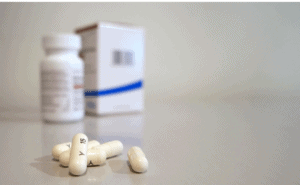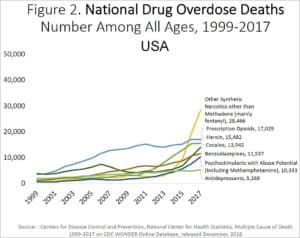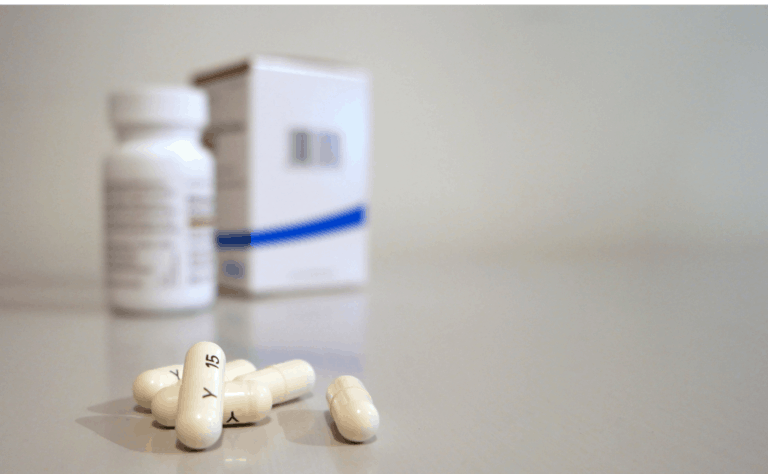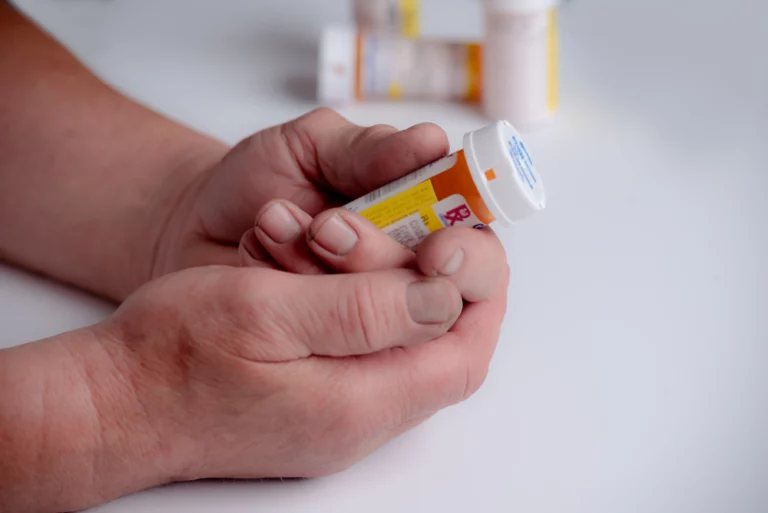History of Percocet
At out Percocet addiction treatment center you’ll learn that, Percocet is a blended drug as it combines the synthetic opioid oxycodone with acetaminophen, a common pain reliever found in over-the-counter drugs such as Tylenol. Patented in 1976, Percocet acted as an alternative to a popular drug at the time, Percodan. Percodan was also a combination painkiller as it blended oxycodone and aspirin, however, the aspirin component had serious blood-clotting side effects. By the late twentieth century, Percocet was the preferred pain killer within the medical community before becoming one of the main drivers in the prescription painkiller addiction epidemic. According to the U.S. Department of Health and Human Services, an estimated 130 people every day in the United States die from an opioid-related drug overdose. If you’re in need of help, our Percocet addiction treatment center is here for you.

The Percocet High
Percocet is typically taken orally but can also be snorted. Percocet produces a high in which the user experiences:
- Impaired coordination
- Confusion
- Depressed breathing
- Muscle weakness
- Loss of balance
- Difficulty speaking
- Depressed heart rate
- Dizziness
Side Effects of Percocet Abuse
Long-term Percocet abuse can cause lasting effects and irreversible damage. Such side effects include:
- Depression / Serotonin Syndrome
- Cardiovascular Issues
- Insomnia
- Memory loss
- Chronic fatigue
- Unconsciousness
- Seizures
- Death
Percocet Use in the United States
Percocet is among the dangerous class synthetic opioids largely responsible for the current opioid crisis in the United States today with oxycodone, the opioid component in Percocet, being the most widely used opioid in the United States. According to the National Center for Biotechnology Information, In 2017 alone, there were 70,237 recorded drug overdose deaths, and of those deaths, 47,600 involved an opioid. The graph below ranks prescription opioids as the second leading cause for overdose fatalities in the United States, more lethal than heroin.

Percocet Addiction Treatment Center Treatment
Percocet is highly addictive and life-threatening when abused; therefore, it is extremely important to seek help immediately if you or a loved one is struggling with this addiction. Our Percocet addiction treatment center specialists utilize a 12-step program and practice holistic rehabilitation.
Services at the center include:
Partial Hospitalization Program – At our Percocet addiction treatment center we offer a partial hospitalization program for clients who need post-residential treatment as well as for clients who need primary treatment but are unable to enroll in inpatient programs. Our PHP track offers a variety of therapeutic services and benefits to individuals in early recovery from substance addiction. Our day program is full-time, offering all of the clinical hours provided in residential treatment (from 9 am to 5 pm) with the benefit of allowing clients to return home to a structured sober living environment at night. This gives individuals the opportunity to build a community of peers and practice life skills, such as cooking, cleaning, and self-care, while still participating in immersive and intensive clinical addiction and trauma treatment.
Outpatient Rehabilitation – During intensive outpatient treatment, clients live at home or in a sober living residence which can help keep them accountable for their recovery commitment. Our staff coordinates with local, reputable sober living homes to ensure that our clients are living in a safe place and that their needs are being met, even when they are not at clinical sessions. During this time, clients are also encouraged to become involved in local twelve-step fellowships, to find sponsors, and to begin working the steps of recovery through participation in these groups. IOP is a place where clients can process their experiences in twelve-step fellowships and support one another in those individual journeys.
Addiction is difficult to overcome alone. If you feel that you or a loved one is struggling with Percocet abuse, our Percocet addiction treatment center specialists are on standby and ready to help. Call (828)383-0784 and speak with an addiction expert today.






